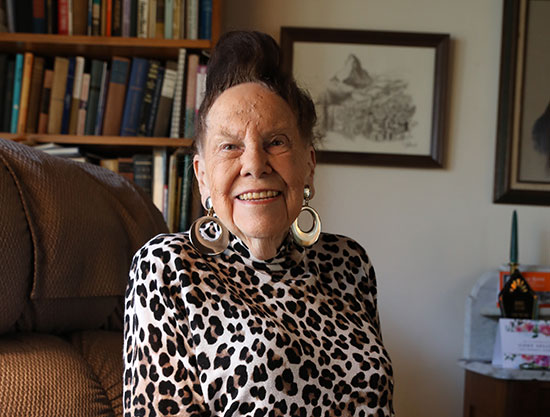
Dec. 16, 2020 – It was a tumultuous year, to put it mildly. The coronavirus pandemic upended personal and working lives, communities nationwide protested and clashed on racial injustice, and the final quarter closed with a, well, unorthodox election season.
The pandemic has forced fundamental changes in how the legal profession, and all professions and industries, conduct business. Numerous legal industry analysts and commentators have said law firms and legal departments moved faster to adopt technology in the first few months of 2020 than they did in the preceding decade.
The Wisconsin Court System transitioned to online Zoom proceedings, law firms and legal organizations moved to work from home arrangements, and lawyers were forced to find creative ways to work remotely and stay connected with clients and colleagues.
Businesses, organizations, and individuals relied and continue to rely on lawyers to provide advice and guidance on coronavirus-related legislation, government shutdown orders, and COVID-19 liability issues, on top of the regular and typical legal matters.
As the pandemic raged, so did calls for racial justice. Millions of people nationwide, including Wisconsin communities, came together in an historic movement, calling for fundamental change to address systemic racism, police brutality, and implicit bias.
As these historic events continue to unfold, the fate of 2021 hangs in the balance. Before we move forward, let’s take a moment to look back.
We reflect on 2020 by highlighting some of the State Bar’s top articles, in no particular order, based on high online reader engagement and State Bar editors’ picks. These are articles that appeared in Wisconsin Lawyer™ and WisBar’s InsideTrack™.
Top 20 Articles of 2020

1. On Racial Equity: 26 Voices (WL, July-August)
As protests swept the country in direct response to police brutality and the inescapable reality of continued systemic racism for African-Americans and other underrepresented groups, Wisconsin Lawyer published 26 perspectives on what this moment in American racial, social, and legal justice meant to them.
“The proliferation of readily available video footage has enabled would-be white allies to witness these atrocities in real time,” said Barbara Franks. “Some are now beginning to wake up to the reality of the (in)justice system as it relates to people of color.”
“In the wake of recent police killings of innocent Black people the festering need for fundamental change in American society has come to the surface,” said Roy Evans. “Unlike movements in the past, history cannot be ignored this time and has risen to the surface of our collective consciousness.”
2. Due Process in the Time of Coronavirus (WL, April)
In April, Grant Killoran and Christa Wittenberg explained that state and federal governments have strong tools, including isolation and quarantine, to counter pandemics but individuals retain due process protections against potential overreach.
“A prompt and effective public health response is vital to protecting the population during a public health emergency, but the constitutional protections afforded the public also must be considered,” they wrote. “After all, it is when the individual rights of some may be at odds with the interests of the majority that our constitutional protections can be most important. Balancing these two interests can be difficult.”

3. The New Wave of Litigation: An Early Report on COVID-19 Claims (WL, June)
As the summer of COVID-19 approached, Grant Killoran, Joseph Newbold, and Erica Reib canvassed the new wave of litigation related to the pandemic, including employment and commercial litigation claims amidst restricted business operations.
“Many of the employment law claims filed to date relating to COVID-19 involve workplace safety,” they wrote. “Concerns about employee safety likely will increase as businesses reopen and probably will lead to additional claims and litigation.”
4. WAAL Presidents Discuss Racism, Protests (IT, June)
The three presidents from the Wisconsin Association of African-American Lawyers (WAAL) discussed policy brutality, civil unrest and protest, and what the legal community and organizations should do to demand and effect change.
“This is a pivotal moment but this is not something that has occurred overnight, said WAAL President Makda Fessahaye. “This is just a boiling point of all the things that have been occurring in the United States for a number of years.”
5. Marsy’s Law: Changes Crime Victims? (WL, September)
A majority of Wisconsin voters ratified Marcy’s law, an amendment to the state’s constitution, intended to provide greater rights for crime victims. But a panel of attorneys collaborated to explain that ratification of the law may have left unresolved issues.
“This article considers the amendment in light of Wisconsin victims’ long-standing constitutional and statutory rights in an effort to provide lawyers with a framework through which to discern what Marsy’s Law means and does not mean for crime victims in this state,” the authors wrote.

6. The Legal Domino Effect: COVID-19 and Contracts (WL, May)
Robert Gegios and Lance Duroni explained that businesses negatively affected by COVID-19 might attempt to avoid or evade contractual obligations, but not every contract can or should be negated.
“Insurance policy exclusions are only as good as state and federal laws allow them to be,” they wrote. “Legislative efforts are underway in many states to require insurance companies to cover COVID-19 claims irrespective of stated policy exclusion.”
7. Class of 2020: New Lawyers Amid Pandemic, Social Unrest (IT, June)
Imagine graduating from law school and starting your legal career in 2020? State Bar writer Shannon Green caught up with seven new lawyers to get their perspectives. Sadly, a day after publication, one of them, Bella Sobah, passed away.
Bella was set to begin her career as an assistant district attorney in Dane County and was ready to make a difference by advocating for the disadvantaged.
“Her talent was boundless, with an almost divine capacity to both comfort us and harden us. She could be the rainbow in our clouds, or, at other times, our dragon breathing fire,” wrote Gabrielle Tielman-Fenelus, Brittani Miller, and Steven Wright in Inbox.
“In the midst of the chaos of law school, she shone as the person we aspired to be, a once-in-a-generation mind with a passion for justice, an outspoken advocate who strived to help young people chart and pursue a nobler course. She inspired these young people, as she inspired us, with her wisdom, kindness, and generosity.

8. Series on Protecting Older Clients (WL, 2020)
In 2020, Wisconsin Lawyer did a special focus on protecting older clients with a series of articles on elder law issues, including an overview and articles on elder law fraud and abuse, financial exploitation, elder law practice, protective services, and more.
According to Gretchen Viney, chair of the Content Subcommittee of the Wisconsin Lawyer’s Editorial Advisory Board, noted “research indicates that 1 in 10 older adults experiences elder abuse. In 2010, there were 5.8 million people age 85 or older, and by 2050, it is projected that there will be 19 million people age 85 or older.”
“I hope you will take advantage of the expertise of our contributors by reading and responding to the wide array of content that you will see in the coming months,” wrote Viney, referring to a wide range of elder law articles published throughout the year.
9. The Families First Coronavirus Response Act: Time Off Obligations (IT, March)
Things were moving rapidly in March, when John Gardner write about the Families First Coronavirus Response Act (FFCRA), Congress’ first legislative effort to provide relief amidst the spreading coronavirus. The law governs employer-leave obligations.
For instance, Gardner explained the law’s expanded provisions for emergency paid sick leave for employees unable to work based on COVID-19. Gardner also explained employer obligations under the FFCRA’s expanded medical leave provisions.
10. The Metaphorical Unicorn: Diversity and Inclusion in Litigation Practice(IT, November)
Eric Andrews discusses how diverse lawyers are woefully underrepresented in plaintiff personal injury firms and insurance defense law firms.
“It is crucial for law firms and their management to ensure that their organizations are diverse and reflect the communities they serve – and are inclusive, providing opportunities for advancement and mentorship,” Andrews wrote.

11. Legal Innovation in 2020 (WL, November)
Met this year’s Wisconsin Legal Innovators – forward thinkers all. Amid this year’s challenges, they put in place creative solutions to address a range of issues affecting the public’s access to justice.
“The people behind these projects and programs focus on access to healthcare, compassionate release of dying prisoners, accuracy in forensic science, socially distanced assistance for domestic violence victims, and state court technological advances related to the pandemic itself,” wrote author Ed Finkel.
12. Estate Planning: What Lawyers Need to Know About the Secure Act (IT, February)
Linda Danielson explained that estate planning lawyers should modify their estate planning forms to reflect recent changes that impact retirement account distributions after death under the Setting Every Community Up for Retirement Enhancement Act (SECURE) of 2019, which took effect on Jan. 1, 2020.
“The SECURE Act provides that, in most cases, the entire retirement account must be paid out within 10 years of the account owner’s death,” Danielson wrote. “This is going to often result in a much more rapid distribution and taxation of the retirement account.”
13. Supreme Court Restores Attorney Ghostwriting Rule for Pro Se Litigants (IT, May)
The Wisconsin Supreme Court restored a rule allowing attorneys to draft or assist in drafting a pleading, motion, or document filed by an otherwise self-represented litigant without signing it but noting that it was prepared with the assistance of a lawyer.”
State Bar Legal Writer Joe Forward reported on this development, as well as the effort to restore the so-called “ghostwriting rule” after it was modified by the legislature. Petitioners argued that the ghostwriting rule is important to promote access to justice.

14. Fred Risser’s Watchful Eye: Reflections on Legislative Service (WL, December)
Attorney and state Senator Fred Risser retires after 64 years of legislative service. This articles traces the rise of a young politician and his lasting impact on Wisconsin.
“Sen. Risser, a lawyer and a Democrat representing Senate District 26 in Madison, is the longest serving state legislator in both Wisconsin and U.S. history. A World War II veteran, his service in the Wisconsin Legislature spans the terms of 13 governors,” wrote State Bar Legal Writer Joe Forward.
15. Working Remotely: Practical & Ethical Tips and Resources (IT, March)
State Bar Ethics Counsel Tim Pierce and Aviva Kaiser teamed up with State Bar Practice Management Advisor Christopher Shattuck to discuss the ethical and technology issues of setting up your home office as an attorney.
“Continuity of operation planning requires an understanding of the technology and systems needed to run a physical office remotely, as well as an understanding of the corresponding ethical implications,” they wrote.

16. Profile: Cody Split: A Century of Living (WL, June)
Cody Split turned 101 this past summer before passing away last month. In this article, readers learn about her childhood during the Depression, her World War II service, and her interesting path to becoming one of the first women lawyers in Appleton.
“While a student, she resumed her support of Wisconsin Republican politics, passing out fliers on the Capitol Square and accompanying candidates as they traveled around Wisconsin giving campaign speeches,” wrote author Shannon Green
“On a snowy day in 1946, Cody traveled from Wausau to Park Falls with Joseph McCarthy as he campaigned for the U.S. Senate.” She said he drove too fast.
17. Returning to Work: Creating a Safe Workplace for Employees and Clients (IT, May)
As government shutdown orders expired, many employers began reopening plans, including law firms. State Bar Legal Writer Joe Forward connected with Lori Dorn, past president of the Wisconsin Association of Legal Administrators, to discuss guidelines and standards employers should follow to create a safe working environment.
“One thing that law firms can do is create a team or committee, or assign an individual within their firm to create a plan and monitor and modify the plan in response to evolving recommendations from the CDC and other health orders that come down from the federal government or state or local municipalities,” Dorn said.

18. Wisconsin Small Business Guide to the CARES Act (IT, April)
Laura Callan discussed business loan programs available under the Coronavirus, Aid, Relief, and Economic Security (CARES) Act, signed into law at the end of March.
“This guide provides information about the major programs and initiatives that will soon be available from the Small Business Administration (SBA) to address these needs, as well as additional tax provisions that are outside the scope of the SBA,” she wrote.
19. Annual Review: Wisconsin Supreme Court 2019-20 Term (IT, August)
Several high-profile cases involved clashes between the executive and legislative branches during the Wisconsin Supreme Court’s 2019-20 term.
This annual article includes insights on decisions from a civil litigator and a former state public defender, with decision holdings and votes on every case.
· See alsoTop 10 recent Wisconsin Supreme Court Decisions (WL, December); and
· Top 8 Recent Wisconsin Federal Decisions (WL, December)
20. 10 Hot Legal Tech Developments in the Legal Developments in the Last Decade (WL, February)
In February – before the pandemic hit the fan in the U.S. – lawyer, journalist, media consultant and blogger Bob Ambrogi noted tumult and upheaval in legal technology the last decade, bringing changes that will forever transform the practice of law.
Three months later, he was talking about a pandemic that will forever transform the practice of law. His review of the last decade was a reminder that transformation will continue to happen, and the legal profession must keep up.
“Lawyers have started to appreciate the value of data and the insights it can provide. The most dramatic example of this has been litigation analytics – tools that take data derived from court dockets and documents and apply analytics to make predictions about likely outcomes or patterns,” Ambrogi wrote.

21. Annual Legal Blog Roundup: Wisconsin legal Bloggers Fill Legal News Void (IT, June)
The 6th annual article on Wisconsin legal blogs noted that bloggers mobilized quickly to provide crucial information during the ongoing COVID-19 pandemic. Some of those blogs are not part of the State Bar’s new legal blogging community, WisLawNOW.
“From coronavirus-related legislation and regulation to working and serving clients from home, from adapting to new legal technology to remote court hearings, lawyers kept up with rapid changes through daily blog posts on law firm websites and other platforms,” wrote Joe Forward, who spoke to legal journalist Bob Ambrogi, a prolific blogger.
Blogging in 2020 and WisLawNOW

To keep clients informed on the rapid legal and legislative developments involving COVID-19, many lawyers used blogs as a vehicle. State Bar section blogs posted more than 110 blog posts in 2020, through 16 section blogs and one division blog.
In addition, the State Bar created a Coronavirus & the Law Blog in March to aggregate outside law firm blogs, which were publishing daily COVID-19 updates.
Now, both State Bar section blogs and other Wisconsin law blogs are available in one place, WisLawNOW, a community of Wisconsin law blogs that brings together blog content written by State Bar of Wisconsin members under a single website.
The State Bar is actively onboarding member-bloggers. To be included in WisLawNOW, complete a short online form. After filling out the form, the blog will be reviewed for substance and technical requirements. For more information, read WisLawNOW’s FAQ.
